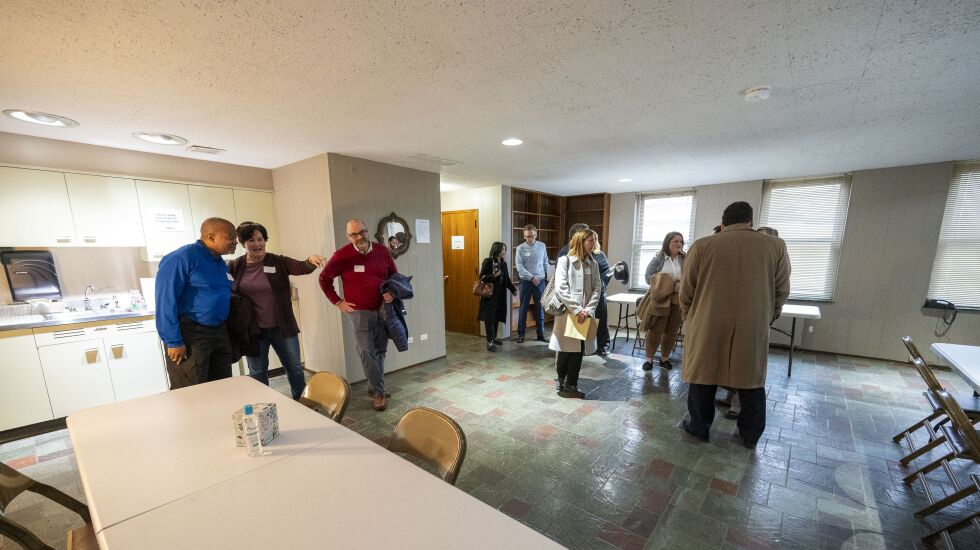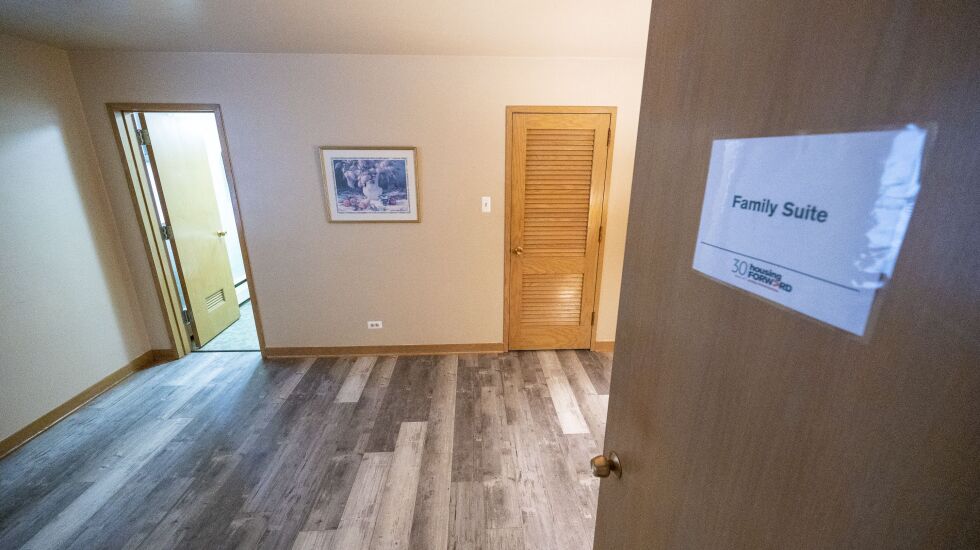
An Oak Park building where clergy once lived has been transformed into an emergency overnight shelter.
The shelter at 38 N. Austin Blvd. — once the rectory for St. Catherine of Siena/St. Lucy parish — will be open daily, 7 p.m. to 6:30 a.m, through April 30. Guests will be served a hot dinner, a continental-style breakfast and a bagged lunch as they leave.
The shelter is operated by Housing Forward, a nonprofit serving unhoused residents in western Cook County. Staff, along with church volunteers, spent six weeks converting the space, work that included installing showers and a vinyl floor.
“With COVID the last couple of years, it’s been hard to have places to have shelters,” said Carl Morello, pastor of the new St. Catherine-St. Lucy and St. Giles combined parish. “So it was exciting for me, and for this group working on it, to be able to help make this happen.”
The shelter will have space for about 10 guests most nights, Morello said, with room for a few others in case of emergency. Former clergy suites offer more privacy and could be used by families or small groups.
Funding was provided by the village of Oak Park, as well as from an Illinois Department of Public Health grant supporting new emergency shelters in winter. Takeout 25, an Oak Park food sustainability group, will provide hot food from nearby restaurants.

Engagement specialists from Housing Forward will be on hand in the evenings to help connect guests with other forms of assistance.
“While we very much want to help each individual resolve the crisis of homelessness, we also recognize that not everybody is ready,” chief development officer Erik Johnson said. “We have to follow how they are approaching it.”
Knowing that demand could be high, and bed space limited, Johnson said the team is taking operations one night at a time. Law enforcement and hospitals can refer guests to the Oak Park shelter, but some new arrivals may be referred elsewhere.
Turning people away on cold nights is a concern — but so is overcrowding.
“We are creating systems that address the needs of the community,” Johnson said, “But we want to do it in a way that provides somebody a safe and comfortable place to sleep at night.”
Prior to the COVID-19 pandemic, Housing Forward’s main program for emergency overnight housing, known as PADS, sheltered over 600 residents a year, Johnson said. Guests would receive a hot meal and sleep on a foam pad at local churches or gyms.
“We have always recognized, for people experiencing homelessness, it’s a continuum,” Johnson said. “There’s always a place for a shelter.”








